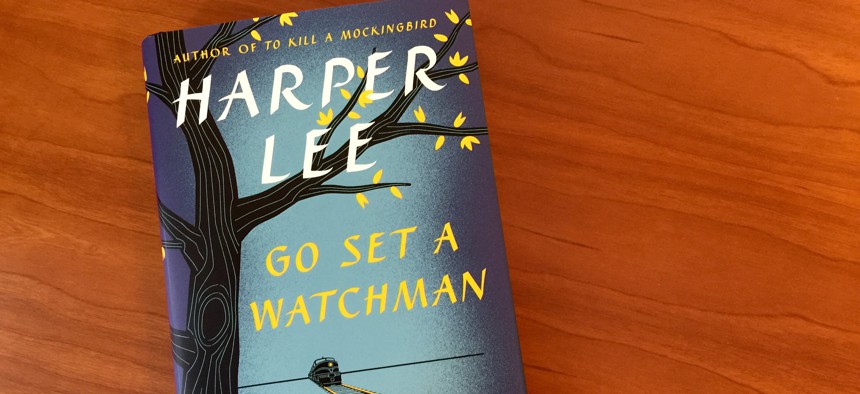What ‘Go Set a Watchman’ Tells Us About the Big Government Debate
Some things haven’t changed much in the past fifty years.
The literary event of the year is the breathlessly awaited publication of Go Set a Watchman, the prequel to To Kill a Mockingbird.
While the book arrived to mixed reviews, and questions about whether Harper Lee actually wanted it to see the light of day, it is at the very least a literary curiosity. And it accomplishes something unexpected: revealing just how little the debate over the size and role of the federal government has changed in the past five decades.
Go Set a Watchman, which its publisher, HarperCollins, says was originally written in the mid-1950s, centers on the return of Mockingbird’s Scout, now known as Jean-Louise, to her Georgia birthplace. There she discovers that the burgeoning national debate over race relations is playing out in her own family in ways that leave her deeply disillusioned -- particularly in her father, Atticus.
But it’s another character, Atticus’ brother and Jean-Louise’s uncle, Jack Finch, who puts the civil rights debate in the broader context of attitudes toward government. About two-thirds of the way through the book, he delivers a lecture to her about how things are changing -- and not for the better, in his view:
Look at the rest of the country. It’s long since gone by the South in its thinking. The time-honored, common-law sense of property -- a man’s interest in and duties to that property -- has become almost extinct. People’s attitudes toward the duties of a government have changed. The have-nots have arisen and demanded their due -- sometimes more than their due. The haves are restricted from getting more. You are protected from the winter winds of old age not by yourself voluntarily, but by a government that says we do not trust you to provide for yourself, therefore we will make you save. All kinds of strange little things like that have become part and parcel of the country’s government.
Uncle Sam, says Uncle Jack, is creating a “new class” of dependent people who are the “apples of the federal government’s eye.” Accused of cynicism by Jean-Louise, he responds: “Cynical, hell. I’m a healthy old man with a constitutional mistrust of paternalism and government in large doses…..The only thing I’m afraid of about this country is that its government will someday become so monstrous that the smallest person living in it will be trampled underfoot, and then it wouldn’t be worth living in.”
Imagine if those words had been spoken on the stage at the Republican presidential debate last week. They wouldn’t have seemed out of place in the least.
NEXT STORY: A Government Shutdown Looks Increasingly Likely








